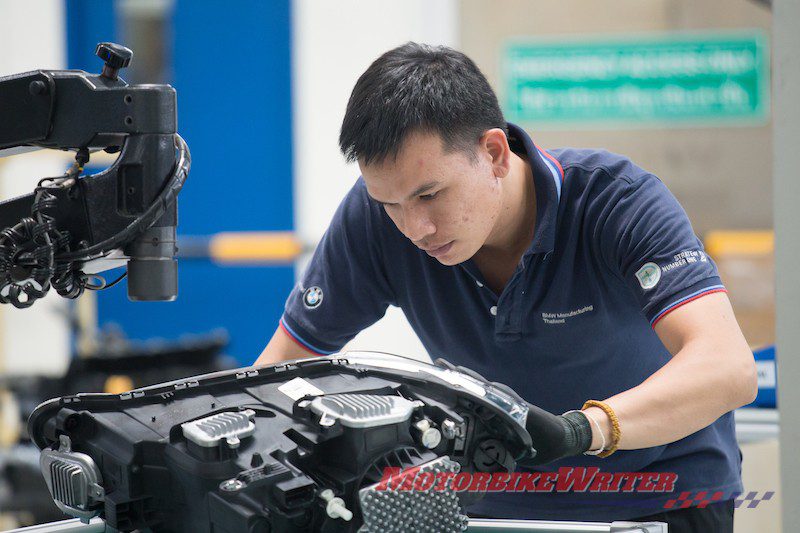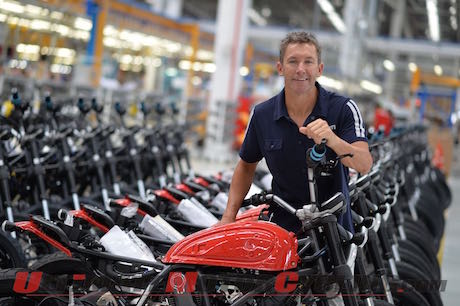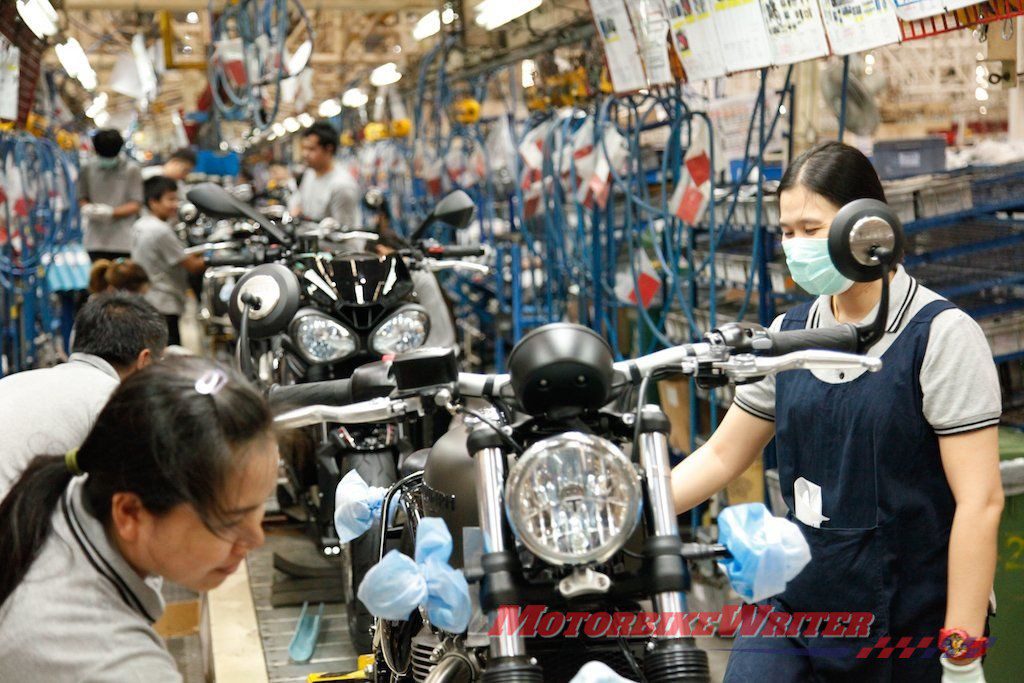Thailand has become one of the powerhouses in the automotive world, manufacturing motorcycle brands as diverse as BMW, Ducati, Harley-Davidson, Triumph and Royal Enfield.
It’s now the largest automotive manufacturer in South East Asia and the 12th in the world, thanks to protective tariffs, corporate tax breaks and a central location wth several ports for export.
Powerhouse
Every dual-cab ute and Honda car, plus small Mazdas, Fords and MG sold into Australia are made in Thailand.
There are also more than 1800 automotive parts manufacturers in Thailand including the premium Swedish Ohlins suspension and BMW batteries for electric cars, scooters and future motorcycles.

Motorcycle manufacture is also growing in leaps and bounds with Royal Enfield the eighth to announce it will open a factory in the country.
In 2015, Thailand made 1.8 motorcycles, with domestic sales of 1.6 million and exports of 350,000 units.
At the moment, the only motorcycles exported to Australia from Thailand are 80% of the Triumph range, Ducati Scramblers and some small- and medium-capacity Japanese bikes and scooters.
Harley-Davidson CFO John Olin says their Thai plant came online late last year.
“As we explained when we announced this project in 2017, we intend to utilise it to make more of our products accessible to customers and targeted international market,” he says.
However, Harley-Davidson Australia spokesman Keith Waddell says the company has confirmed to them that “motorcycles for Australia will not be assembled in Thailand”.
That could change in years to come.
Thailand skeptics

When Honda announced it would be importing most of its cars from a new factory just outside Bangkok about a decade ago, there was some skepticism among Australian motoring journalists that they would be accepted by Aussie motorists.
So Honda Australia organised a tour of their factory which I attended.
I was surprised to find a state-of-the-art facility built on a greenfield site with supervisors walking around wearing white gloves and a floor so clean you could eat your dinner off it.
One supervisor told me the quality was strictly controlled, but the humid environment actually cured plastics and rubber better for a longer life than in vehicles made in Japan.
However, another manufacturer told me the humidity destroys some rubber very quickly.
To Aussie drivers, there now seems no problem with Thai-made cars. In fact, our top-four-selling vehicles are all Thai made.
The vehicles are good quality and the Thai-Australian free trade agreement makes them good value.
Likewise, there should be little concern with Thai bikes.
However, some say the recall problems Triumph has suffered in recent years are a result of Thai production.
Rather than a lack of quality production facilities, it’s more likely the rush to get new models on to the market as is the case with most motorcycle manufacturers.


